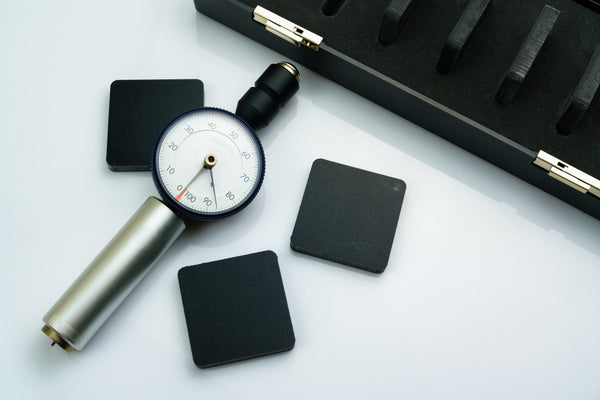Enhancing Manufacturing Quality with Shore Hardness Testers: A Look at the Sauter Range
Shore hardness testers are integral tools in the manufacturing industry, particularly in the realm of polymers and plastics. They provide an empirical method for characterizing the resistance of materials to localized deformation or indentation, in other words, their hardness. The Shore A hardness scale, for instance, measures the hardness of a variety of materials - from soft rubbers and thermoplastic elastomers to semi-rigid plastics.
One of the key benefits of using the Shore A hardness scale is that it allows manufacturers to determine whether a material is sufficiently hard or soft for a particular application. For instance, a rubber band, having a hardness of approximately 20 A, and a shoe sole with a hardness of approximately 70 A are examples of the varying degrees of hardness that can be evaluated with this scale.
Another advantage is the easy comparison of material hardness when using the same scale. This enables manufacturers to maintain consistent product quality through statistical process control. However, it should be noted that the Shore A hardness scale is most suited to non-metallic materials such as thermoplastics, thermosets, thermoplastic elastomers, silicones, cellular materials, and waxes.
In the world of Shore hardness testers, the Sauter range stands out for its precision and versatility. Take the Sauter HDA 100-1 Digital Shore Hardness Tester, for instance. This device allows for accurate measurement of the penetration hardness of various materials. Not only can it store data with precision, but it also offers the flexibility of choosing between Shore A, C/0, and D scales. Furthermore, it features a digital display for clear readability and an automatic power off function for energy conservation.
To sum up, Shore hardness testers, like those in the Sauter range, play a vital role in the manufacturing industry. They provide a reliable means of determining the hardness of various materials, ensuring that they are suitable for their intended applications. By using these tools, businesses can enhance product quality, minimize waste, and ultimately, boost their bottom line.
It's important to remember, though, that the Shore hardness values are temperature-dependent. For example, most materials measured by the Shore A hardness test will give lower hardness readings at higher temperatures, and higher hardness readings at lower temperatures. Suppliers of elastomeric products such as O-rings design their products to a specific Shore A hardness and report the temperature range in which the material retains an appropriate durometer level.
In essence, the Shore hardness testers and the Shore A hardness scale are powerful tools that businesses can use to maintain and enhance the quality of their products. By understanding the hardness of materials, manufacturers can ensure that their products perform their function optimally, providing value to their customers and contributing to the business's overall success.
You can view our range of hardness testers by clicking here.

